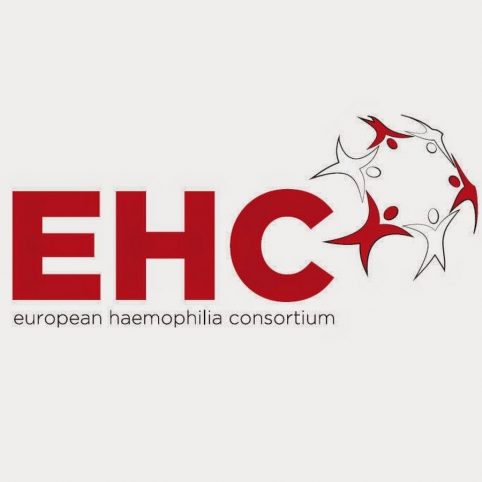The following is a statement from the European Haemophilia Consortium (EHC) commenting on the European Medicines Agency (EMA) statement regards Covid-19 AstraZeneca vaccine:
19 March 2021
The European Haemophilia Consortium (EHC) has been closely monitoring the recent safety signal of blood clots in some recipients of the COVID-19 Vaccine AstraZeneca and wishes to inform its community of the following.
The European Medicines Agency (EMA) safety committee, PRAC (Pharmaceutical Risk Assessment Committee), following its preliminary review of this safety signal, concluded that benefits of the COVID-19 Vaccine AstraZeneca still outweigh the risks.
The PRAC has concluded this despite possible links to rare blood clots with low blood platelets, based on the following (direct quote):
“The Committee confirmed that:
• the benefits of the vaccine in combating the still widespread threat of COVID-19 (which itself results in clotting problems and may be fatal) continue to outweigh the risk of side effects;
• the vaccine is not associated with an increase in the overall risk of blood clots (thromboembolic events) in those who receive it;
• there is no evidence of a problem related to specific batches of the vaccine or to particular manufacturing sites;
• however, the vaccine may be associated with very rare cases of blood clots associated with thrombocytopenia, i.e., low levels of blood platelets (elements in the blood that help it to clot) with or without bleeding, including rare cases of clots in the vessels draining blood from the brain (CVST).
The PRAC’s decision was based on weighing the vaccine’s proven efficacy in preventing hospitalisation and death from COVID-19 against this “extremely small likelihood of developing DIC (disseminated intravascular coagulation) or CVST (cerebral venous sinus thrombosis).”
However, it also calls for patient awareness and “if symptoms suggestive of clotting problems occur (see below) patients should seek immediate medical attention and inform healthcare professionals of their recent vaccination,” and has issued the following recommendation for patients:
• COVID-19 Vaccine AstraZeneca is not associated with an increased overall risk of blood clotting disorders.
• There have been very rare cases of unusual blood clots accompanied by low levels of blood platelets (components that help blood to clot) after vaccination. The reported cases were almost all in women under 55.
• Because COVID-19 can be so serious and is so widespread, the benefits of the vaccine in preventing it outweigh the risks of side effects.
• However, if you get any of the following after receiving the COVID-19 Vaccine AstraZeneca:
o breathlessness,
o pain in the chest or stomach,
o swelling or coldness in an arm or leg,
o severe or worsening headache or blurred vision after vaccination,
o persistent bleeding,
o multiple small bruises, reddish or purplish spots, or blood blisters under the skin,
please seek prompt medical assistance and mention your recent vaccination.
At the time of its position-taking, the PRAC had reviewed seven (7) cases of blood clots in multiple blood vessels and 18 cases of CVST – nine (9) of which resulted in death – and stated that although a causal link with the vaccine had not been proven, it remained possible and would be further analysed.
The PRAC reported that, while the overall number of thromboembolic events post-vaccination was lower than expected in the general population, there remained some concerns regarding these rare blood clot events in younger patients, most of whom were under 55 and primarily women. On this, the PRAC noted:
Because these events are rare, and COVID-19 itself often causes blood clotting disorders in patients, it is difficult to estimate a background rate for these events in people who have not had the vaccine. However, based on pre-COVID figures it was calculated that less than 1 reported case of DIC might have been expected by 16 March among people under 50 within 14 days of receiving the vaccine, whereas 5 cases had been reported. Similarly, on average 1.35 cases of CVST might have been expected among this age group whereas by the same cut-off date there had been 12. A similar imbalance was not visible in the older population given the vaccine.
There is no specific advice for patients with a bleeding disorder issued in the statement. Bleeding disorder patients who have concerns should contact their hematologist. The PRAC will continue to undertake additional reviews of these clotting risks, also with other types of COVID-19 vaccines.
The EHC will continue to closely monitor and update on these developments as necessary.
About COVID-19 Vaccine AstraZeneca
The COVID-19 Vaccine AstraZeneca received conditional marketing approval on January 29, 2021 for people aged 18 years and older to prevent coronavirus disease 2019 (COVID-19). This vaccine is based on a mechanism of action using an adenovirus which was modified to contain the gene that makes a SARS-CoV-2 protein, thereby triggering the immune system against this protein. The COVID-19 Vaccine AstraZeneca itself does not contain the virus and cannot cause COVID-19. Usually, the most common side effects with COVID-19 Vaccine AstraZeneca are mild or moderate and have been reported to improve within a few days after vaccination.
